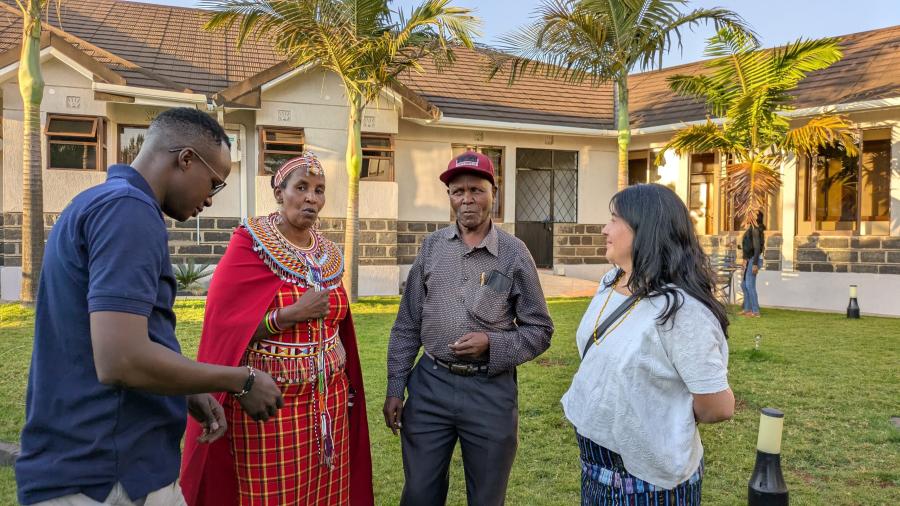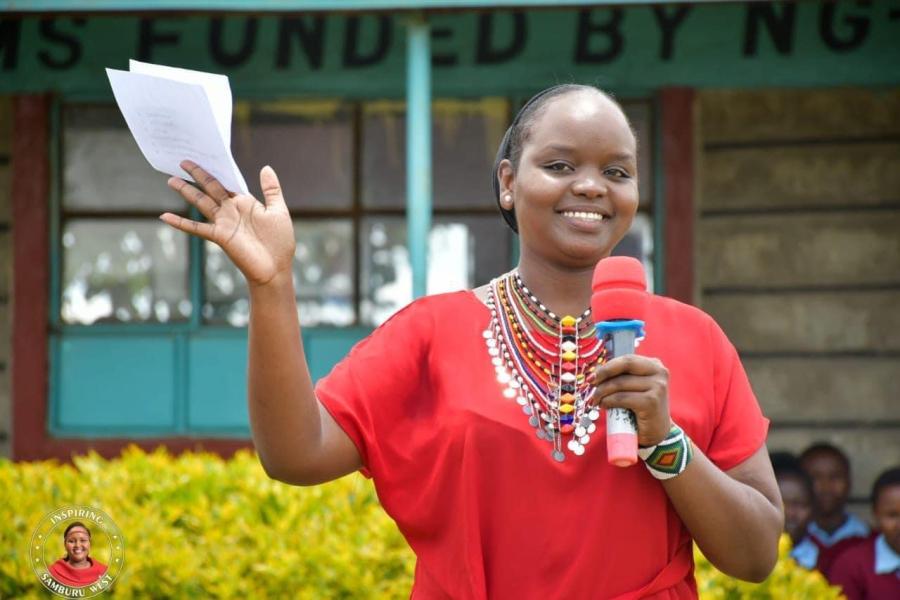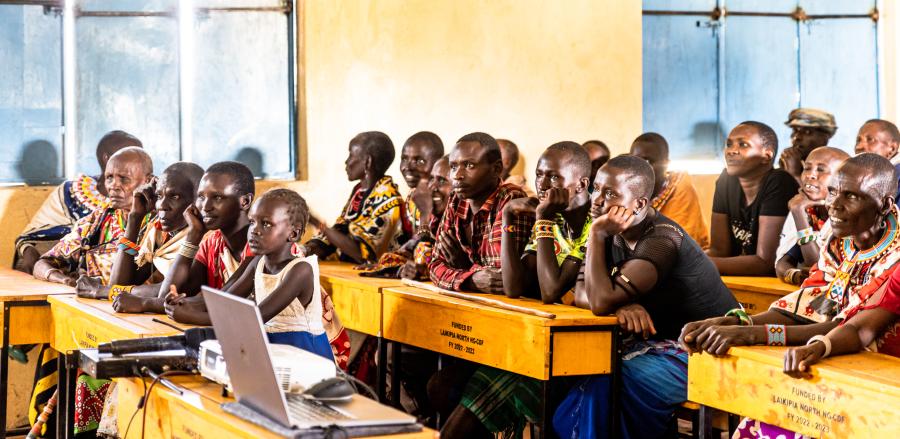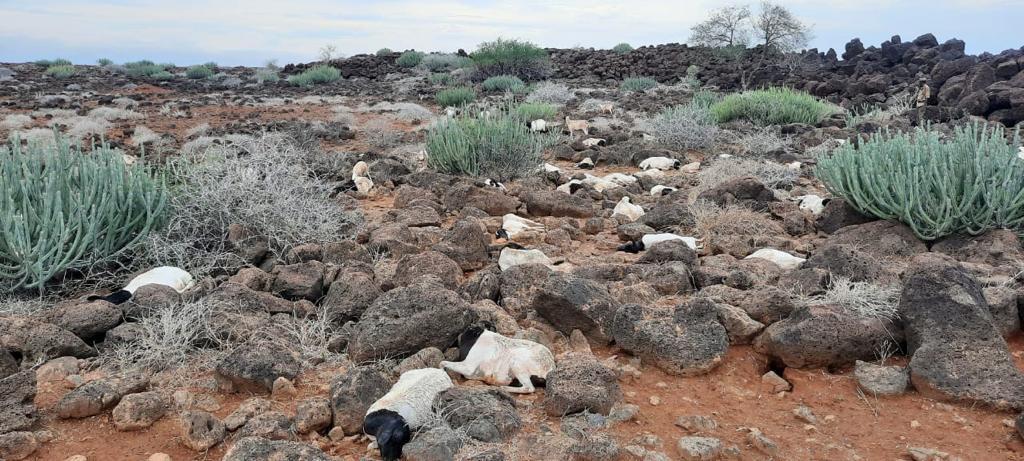
Reposted from Peasant and Indigenous Press Forum
MARSABIT, KENYA — In Sub-Saharan Africa, severe effects of climate change are wreaking havoc for tens of millions of people, bringing the longest drought in the region in nearly four decades, the failure of the last three rainy seasons in a row, violent flash floods, sand storms and ruined harvests. As many as 20 million people in the eastern Horn of Africa are facing food shortages and extreme hardship. All of this is leading to rising numbers of climate refugees. Additionally, the usual economic drivers of the region, livestock and agriculture, have been especially hard hit—relentless droughts and sudden flash floods have reduced livestock numbers in the region by more than 1.5 Million since late last year; in Kenya, poor rains have slashed harvests by as much as 70 percent below normal levels, leading to skyrocketing food prices. On January 17, 2022, nearly twice the daily amount classified as “severe” rain fell in Marsabit county (Kenya’s second-largest county), killing upwards of 100,000 goats and sheep.
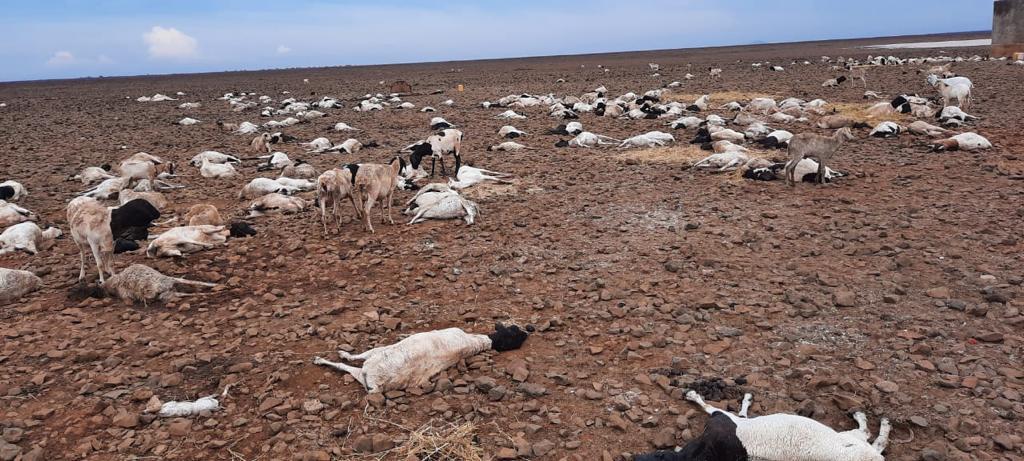
Many pastoralists question if there is a future in their occupation due to the interlocked issues of poverty and drought-aggravated conflict in the region. Droughts often render camels, goats, and sheep unable to produce milk to nurture their young. Pastoralists are struggling from losses, but their pleas for support have been unanswered by governments and businesses. In Marsabit county, an estimated 10% of pastoralists abandon the occupation year over year due to adversity. Some Marsabit pastoralists like Tumal Orto study various cases for solutions, like herd separation to prevent birthing during drought seasons, and when necessary nourishing young livestock with milk replacer. The horn of Africa is historically familiar with harsh climate and cyclic droughts, but local residents state that people are losing their resilience due to adversity from unpredictable climate patterns. In the past, pastoralists received failed solutions from donor-backed organizations, such as breeds of cattle that were ultimately not suited for the region. Now pastoralists and county representatives call for low-cost solutions that marry indigenous knowledge and scientific innovation. Such localized solutions include rainwater harvesting, “Kalo” grass management, and raising resilient local Indigenous breeds of livestock.
QUOTES
“Our identity as pastoralists is our livestock. If they are killed by extreme weather or rain, suddenly, we become climate refugees. Who will pay us for the losses and damages caused by climate change to hard working pastoralists & peasant farmers in Africa?”
“Pastoralist communities anywhere in the world are struggling. But they are suffering for the mistakes that they haven’t done. That is climate change.”
“Our identity is our livestock, but if it is cleared by extreme weather and rain, suddenly, you become a climate refugee.”
“My livestock is my coffee and tea. But my livestock is being cleared by climate change. It is being cleared by drought. That is my livelihood, for the education of my daughters. I have no alternatives, I am on the verge of becoming a climate refugee.”
— Tumal Orto, a pastoralist representing a community of more than 400,000 pastoralists in Marsabit.
MEDIA CONTACT
Tumal Orto Galdibe, Northern Climate Resilience
+254 725 949966 (Whatsapp preferred)
